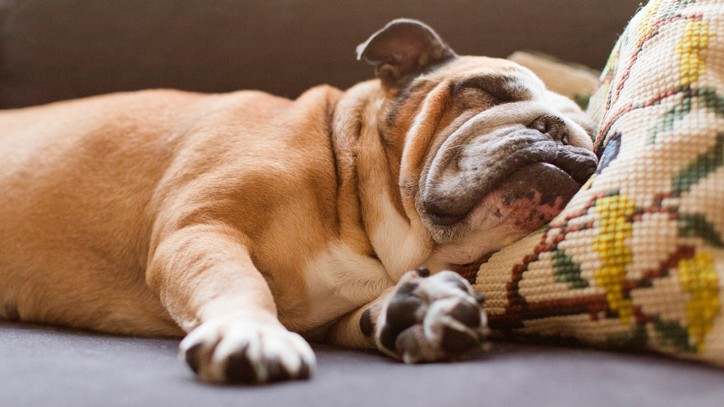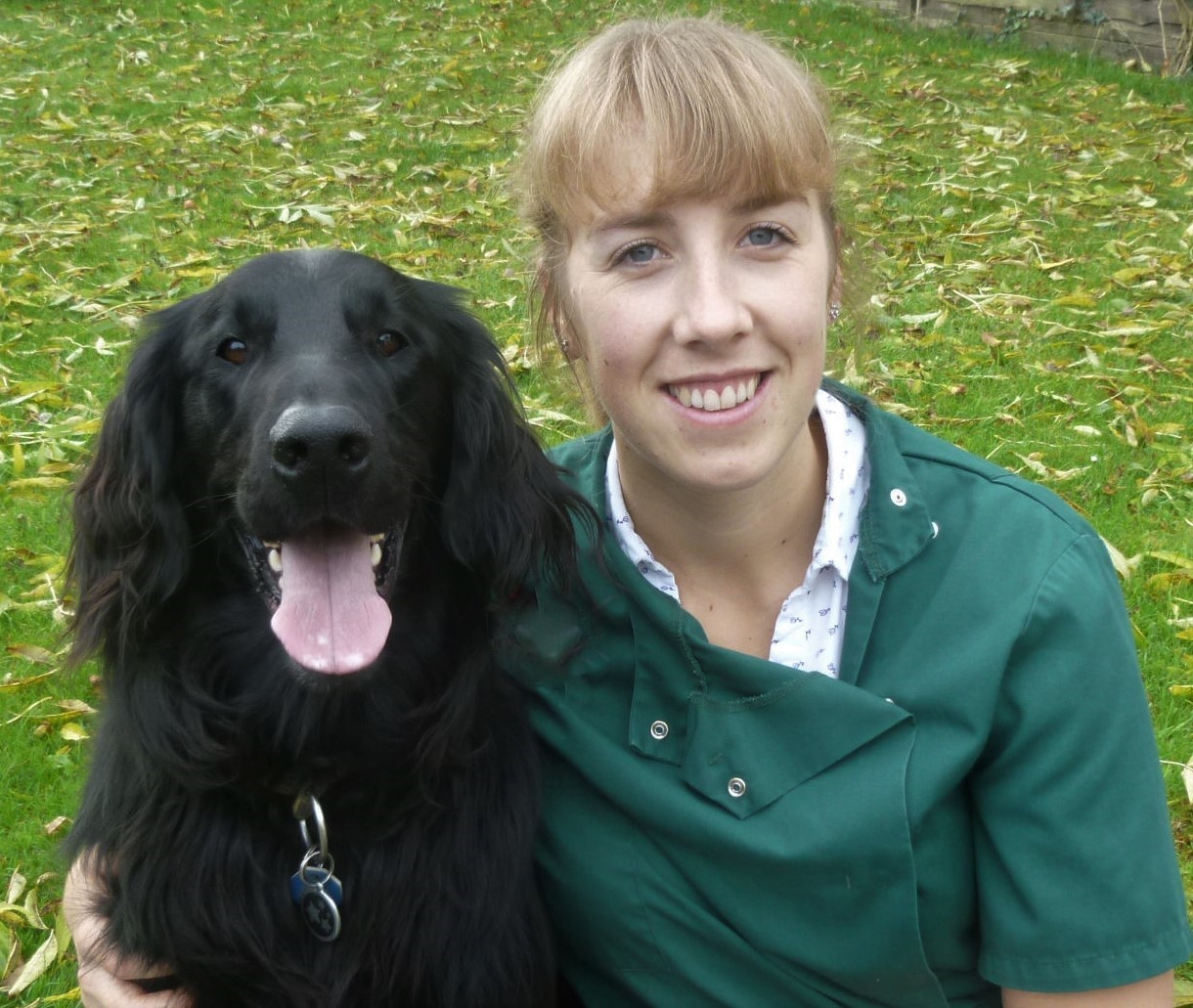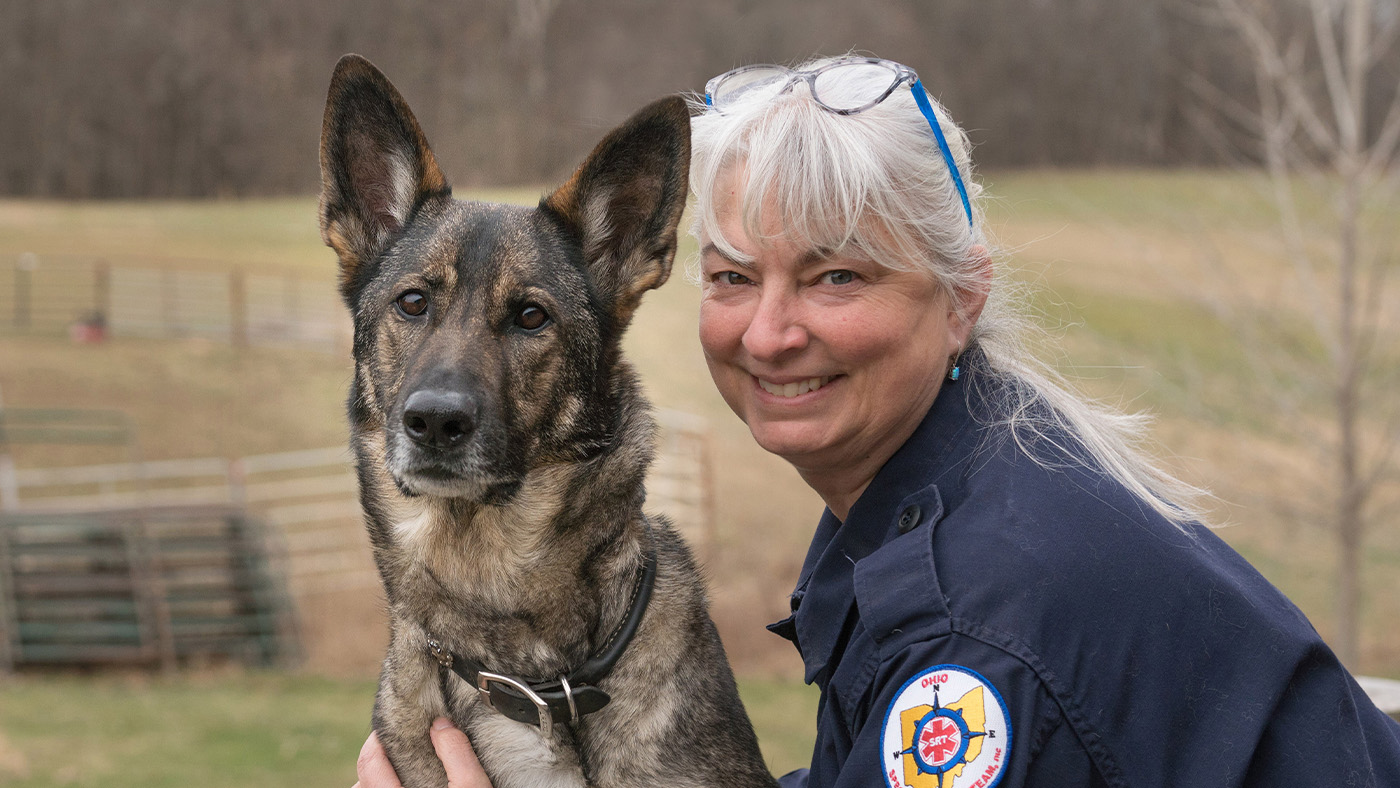Why is my dog snoring?
Is your dog snoring? Our vet explores whether this is normal, so read on to find out more!

Snoring is usually associated with annoying partners or roommates, but what if it is your dog snoring? Is it normal for your dog to snore or should it be a cause for concern?
Dogs don’t tend to snore unless there is a problem with their airways restricting the smooth flow of air through their nose and down into their lungs. We know that snoring in dogs does occur, just like in humans, but there are many reasons why this might be happening – some more serious than others. Let’s explore why your dog might be snoring and what you can do to help.
- Best dog bed: Sweet dreams are guaranteed
- Best orthopedic dog bed: Keep your canine comfortable
- Best large dog bed: Find your big furry friend the perfect place to rest
- Best luxury dog beds: Treat your pampered pooch
Is dog snoring normal?
While some dogs may snore routinely the majority are very quiet breathers when relaxed. If your dog is making snoring sounds while he sleeps then it usually indicates an issue with his airways, just as we see in people who suffer from snoring and conditions like sleep apnoea.
Why do dogs snore?
Several conditions could cause your dog to snore. These include –
Breed
Brachycephalic (flat-faced) dogs will be much more likely to snore than other breeds. This is because of several developmental abnormalities that are often found in their airways. These dogs tend to have issues like narrowed nostrils, as well as an overlong soft palate at the back of their throat and a narrowed windpipe (trachea).
Sleeping position
Sleeping in an awkward position could make your dog snore. If they are lying on their back then their tongue could be partially obstructing their airway, or perhaps they are lying with their neck leaning over their paws or the edge of their bed.
Weight
Just as with people, excess weight can make your dog snore more than usual. Extra pressure on the soft tissue around the airways can lead to constriction and increased noise.

Allergies
Allergies can cause swelling of the delicate tissues in the nasal passages and back of the throat. Dogs can suffer from similar allergies to us, flaring up to grass pollens, house dust mites and tree pollens.
Environmental pollutants
Things like cigarette smoke or pollution from nearby busy roads could irritate your pet’s airways. Irritation leads to inflammation and constriction of airways, causing turbulent airflow.
Infection
A variety of different types of infections could cause inflammation of the airways and an increase in mucus production. We can see rhinitis and sinusitis in dogs which may have underlying bacterial, viral, fungal or parasitic causes.
A foreign body
A physical obstruction in your dog's upper airways could cause them to snore. If your dog has inhaled something like a grass seed, small stone or a piece of food, this could become lodged, setting up a local infection.
Tumours
If your dog has a growth, polyp, or tumour in his nasal passage or the back of the throat then this could cause an obstruction.
Dog snoring vs reverse sneezing
Snoring usually occurs when a dog is relaxed or sleeping, whereas reverse sneezing can occur at any time of the day. Your dog may start rapidly inward snorting, in a spasm-like fashion. These episodes can last up to a few minutes. Many dogs will do this from time to time, but if it is occurring more frequently then it could be a sign of something irritating the back of your dog’s throat.
Dog snoring remedies
If your dog otherwise appears well then you could try the following.
- Make sure your dog is an appropriate body weight. Get in the habit of regularly assessing your dog’s body condition score, and if your dog is overweight then take steps to address this.
- Make sure your dog has a comfortable bed to optimise the position in which he sleeps, which could help keep his airways more open.
- Avoid smoking around your pet, and make sure the house is regularly dusted and ventilated. Cleaner, fresher air is a good thing for everyone. If you already do this, then maybe try an air filter which could help to reduce allergen levels for your pet.
When to visit the vet
It’s always a good idea to visit your vet if your dog has suddenly started snoring. It is also especially important to seek help if your pet is showing any of the following symptoms –
- A discharge from their nose (mucous or bleeding)
- Excessive sneezing or coughing
- Labored breathing
- Noisy breathing, wheezing, snorting or snoring during the daytime
- Difficulty exercising
- Reduced appetite
- Lethargy
After examining your pet, your vet may suggest some additional tests if they have concerns. Blood tests might be recommended to look for signs of infection or inflammation. Examination of the back of the dog’s throat under anaesthetic can be helpful to look for any structural abnormalities. Diagnostic imaging such as X-rays and rhinoscopy (a small camera that looks down the airways) can help to explore the nasal passages and sinuses, with nasal flush samples being advised in cases of suspected rhinitis. Sometimes advanced imaging like CT and MRI scans can give more information, especially in cases of suspected tumours.
Conclusion
Snoring can occur in dogs due to several underlying reasons, some more serious than others. If your dog suddenly starts snoring it is worth taking them for a check-up at the vets, especially if they are showing any other signs of ill health.
FAQs
Does a dog snoring mean anything?
If your dog is snoring it usually means there is a disturbance to the smooth flow of air into the lungs. This may be because they are sleeping in an awkward position or it could mean there is an underlying health problem, such as obesity, brachycephalic airways or infection.
Is my dog snoring or wheezing?
Snoring occurs when your dog is asleep and relaxed, whereas wheezing is more typically noted when your dog is awake. Snoring sounds occur from the back of the throat, due to air causing vibrations in the soft tissues here. Wheezing sounds are more like a tight, whistling sound.
Why is my dog snoring while awake?
Snoring can occur while your dog is awake, but this indicates a significant problem with their airways, particularly if they have never done it previously. You should get your dog checked over by a vet so that they can help you work out what the issue is.
PetsRadar Newsletter
Get the best advice, tips and top tech for your beloved Pets
Rebecca is a veterinary surgeon who graduated from the Royal Veterinary College in London in 2009. She enjoys medicine in particular and she is proud to have achieved a BSAVA postgraduate certificate in small animal medicine (with commendation) from Nottingham Trent University in 2021.
She has a wealth of experience in first opinion small animal practice, having done a mixture of day-to-day routine work, on-call emergency duties and managerial roles since 2009.
She writes on various feline and canine topics for the Veterinary Content Company and a freelance basis, including behavior, nutrition, and health. Outside of work and writing she enjoys walking her own dog, spending time with her young family and baking!

